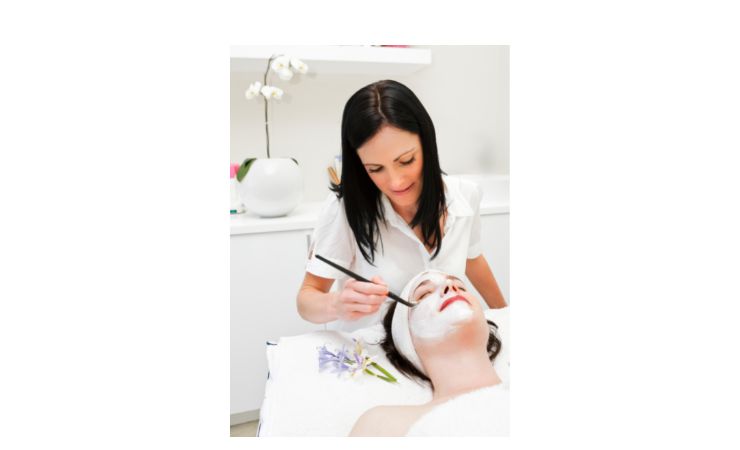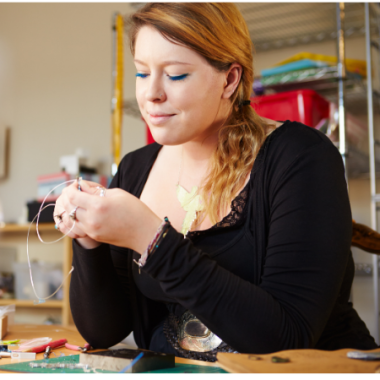Mobile beauty therapists or beauticians, provide treatments such as eyelash and eyebrow extensions and tints, waxing, facials, body wraps and massages. Generally, beauticians provide beauty treatments at their clients’ homes or on a freelance basis in a beauty salon.
Beauty therapists intending to offer specialist treatments and massage may need to be licensed by their local authority. A mobile beauty therapist with clients in more than one local authority area may need to be registered with each local authority.
This profile provides information about starting up and trading as a mobile beauty therapist. Outlining some of the business qualifications available, basic start-up costs and current trends to be aware of before starting.
Although legally there are no qualifications required to set up and trade as a mobile beauty therapist some local authorities require therapists to hold a massage and special treatments (MST) licence. Where an MST is required the therapist will have to provide evidence of relevant qualifications and experience before the licence is granted. Qualifications and experience often come from previous experience working in the hair and beauty sector, such as an apprentice or employee of a salon or spa.
Qualifications and skills
In this blog we have added information for start-up mobile therapists who have qualifications and/ or experience in the beauty sector but not the business experience.
Guild Training International (GTi)
GTI is the Guild of Beauty Therapists’ training body and offers a variety of distance-learning courses. With fees starting from £46.80 the courses cover a variety of topics from starting and making your business, health and safety, professional standards and business marketing.
For a full list of courses see beautyguild.com/Courses
High Speed Training
Offer a two-three-hour online course in Social Media Marketing Training. For £25 + VAT the course explains the benefits of using social media as a marketing tool and how to comply with advertising standards. For more information see highspeedtraining.co.uk/courses
Essential Training Solutions
A £50 online course and qualification, VTCT (ITEC) Level 2 Award in Infection Prevention (COVID-19), for beauty therapy and nail services. This five hour course with final examination either in person at their centre in Hertfordshire or via live webcam. See essential-training.co.uk/product
Virtual College in partnership with Chartered Trading Standards Institute.
An hour-long course covering The Consumer Rights Act 2015. Detailing consumer rights in relations to services and the time limits on consumers to make claims under the act. The course costs £30(inc. VAT). For more information, go to virtual-college.co.uk/courses
HMRC (HM Revenue and Customs).
Provide free webinars covering topics including self-assessment, self employment and VAT. For further information see gov.uk/government
Equipment and beauty product suppliers
The main specialist equipment used by mobile beauty therapists (and prices including VAT) are as follows:
- Portable beauty bed (from £270 each).
- Product trolleys (from £75 to £300 each, depending on capacity, make and finish).
- Wax heaters (from £35 for a hand-held roller model to £80 each for pot heaters).
- Portable facial steamers (from £66 to £260 each, depending on make and model).
- Steam sterilisers (from around £65 each) and bead sterilisers (from £100 each).
Examples of suppliers specialising in equipment and beauty products include Salons Direct (www.salonsdirect.com), Sally Salon Services (www.sallybeauty.co.uk), Beauty Express (www.beautyexpress.com and Capital Hair & Beauty (www.capitalhairandbeauty.co.uk).
The Hairdressing & Beauty Suppliers Association (HBSA) is a membership organisation representing sector suppliers that lists members at https://hbsa.co.uk/members.
Current market trends
There are currently several challenges facing new and established mobile beauty therapists in this current market:
- Those who work as freelance beauty therapists in salons are at risk of losing businesses at salons that are particularly vulnerable to cost-of-living increases. As 80% of overheads are accounted for by energy bills, beauty salons are especially vulnerable to electricity and gas price increases (professionalbeauty.co.uk/site/newsdetails/beauty-salons-struggle-with-rising-energy-bills).
- The Government could introduce a licensing scheme for beauty practitioners in England who provide injectables under the Health and Care Act 2022. A licensing scheme would reduce the harm caused by ineffectively performed non-surgical cosmetic procedures (jccp.org.uk/NewsEvent/press-release-45-publication-on-revised-and-updated-guidance-for-responsible-prescribing-for-cosmetic-practitioners).
- During the cost-of-living crisis, Superdrug expects an increase in DIY beauty tool sales caused by the pandemic to continue. According to research, 21% of consumers are planning to use at-home beauty treatments rather than therapist-provided treatments (retailgazette.co.uk/blog/2022/06/superdrug-posts-rise-in-at-home-beauty-products-as-pandemic-trend-remains).
- Starting up beauty therapists face a wide range of competition, including online tutorials from established beauty therapists and other beauty professionals. Social media platforms such as YouTube and TikTok offer thousands of free tutorials.
Hopefully this guide to starting a mobile beauty business helps you begin your journey. Full industry reports, including trading, commercial and legal issues are available with the purchase of many of our products. If you’re not ready to start but would like to secure your name for the future use check out our reserve company name product, this will include the industry report.
Just one more thing……. every month we give away the best business books, downloads and templates in our newsletters. Sign up below ⬇️







